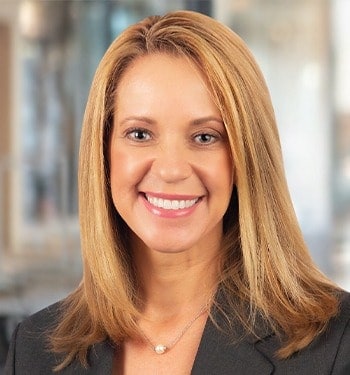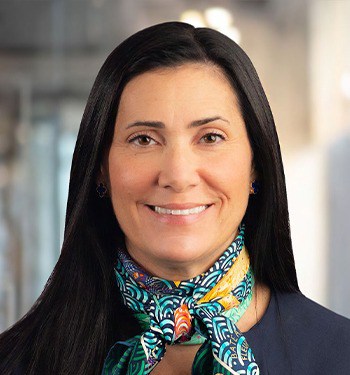Why Does Abuse and Neglect Happen in Nursing Homes?
More often than not, abuse and neglect in nursing homes is a result of purposeful decisions made by the companies that own the nursing homes. These decisions, which are oftentimes made in order to increase the profitability of the companies that own and manage the nursing homes, result in the nursing homes being understaffed and poorly managed. There is a lack of oversight by the companies that own and manage the individual nursing homes, which creates the perfect environment for neglect and abuse to occur.
Signs of Poorly Managed Nursing Homes
Staffing is the largest single expense in a nursing home. As such, that is the line item expense that gets cut the most by corporate when trying to increase their profitability. This leads to understaffing.
Understaffing-not enough nurses and aides to provide proper care for the residents.
An adequate number of skilled staff is the single most important factor in ensuring good care at a nursing home. Even with the most caring of staff members, they cannot provide adequate care if they do not have the staffing resources needed to do so.
Understaffing Leads to Overworked Staff
- Overworked staff – Staff are often called upon to work double shifts or excessive overtime. This leads employee burnout. When employees are overworked and burned out, neglect and abuse are to be expected.
- Burned out staff – Understaffing and overworking staff leads to employee burnout. When staff are overworked and burned out, it is not surprising that they cannot provide good care to the residents.
- Underpaid staff – Nursing homes notoriously pay their staff poorly, compared to comparable wages paid to healthcare providers at hospitals and other types of facilities. This results in unqualified staff and frequent turning at all levels of staffing, from the nursing aides to the Director of Nursing and Administrator.
Common Forms of Neglect and Abuse as a Result of Poor Management Decisions
Frequent Falls – Lack of staff results in the failure to properly monitor, supervise, and assist those in need, in order to protect them from falls. This results in frequent falls, which can lead to injury or death. Falls are the 6th leading cause of death in the elderly in the U.S.
- Falls may result in broken bones, including broken hips, legs and arms, as well as head injuries, including subdural hematomas (bleeding on the brain).
- Fall prevention interventions may include frequent monitoring and supervision of the residents, staff assistance with walking and transferring, keeping bed lower to the floor so that a resident has a shorter distance to fall, if they do fall, fall mats beside the bed to cushion a fall, personal alarms, bed alarms, chair alarms to alert staff that a resident is attempting to get up unassisted, and others.
Elopement/Wandering Away From Facility – Lack of staff results in the failure to properly monitor and supervise residents who may attempt to leave the facility unassisted, which can lead to residents getting outside and away from the facility unnoticed.
- Wander prevention interventions include a wander guard; supervision and monitoring; alarms on doors.
Urinary Tract Infection (UTI) or Other Infections – Lack of staff results in the failure to properly and timely clean residents after incontinent episodes, the failure to ensure catheters are cleaned properly and timely, and a lack of appropriate nursing supervision to recognize signs that a resident may be suffering from an infection, leading to a delay in assessment and treatment and therefore worsening conditions.
Signs/symptoms of UTI or other infection:
- More lethargic; Sleeping more than normal
- Change in mental status
- Behavioral changes, such as:
- Confusion or delirium
- Agitation
- Hallucinations
- Other unusual behavioral changes
- Falling
- Blood in urine
- Strong or foul-smelling urine
- Fever
Pressure sores – Lack of staff results in a failure to turn and reposition residents on a regular basis (i.e. every 2 hours) as needed to alleviate pressure from pressure points, as well as a failure to properly treat pressure sores once they begin, resulting in worsening of pressure sores.
Dehydration/Malnutrition – Many residents need to be fed and given water by the caregivers. If a facility is understaffed, the caregivers do not have the time to feed residents, resulting in malnutrition and dehydration.
Signs/symptoms of Malnutrition:
- Unplanned weight loss
- More tired or weak than usual
- Loss of appetite
- Swelling or fluid accumulation
Signs/symptoms of Dehydration:
- Poor skin turgor/loose skin that doesn’t return to normal after pinching
- Dry mouth
- Headache
- Nausea
- Urinating less than usual
- Lethargy
Choking – Lack of staff results in failure to supervise residents at risk of choking while eating; to ensure that residents’ food is properly prepared, i.e. ensure that resident who needs a mechanically soft diet receive that, instead of regular food.
Medication Errors – Understaffed and overworked employees do not have or take the time to ensure residents receive the correct dosages of the correct medications at the correct times.
Chemical restraints – Overworked staff may drug residents to sedate them, in order to make them easier to care for. The use of chemical restraints for the staff’s convenience is prohibited.
Physical Assault
- Resident-on-resident abuse – Failure to supervise residents with known history of aggression/psychosis, allowing them unsupervised access to other residents.
- Staff-on-resident abuse
Sexual assault/rape/molestation
- Resident-on-resident abuse – Lack of staff results in the failure to properly supervise residents who have aggressive or dangerous behaviors, allowing them unsupervised access to other residents which can result in physical abuse and assault.
- Staff-on-resident abuse – Underpaying staff results in poorly qualified and poorly trained staff who do not have the proper temperament for caring for the elderly. Understaffing and overworking staff results in employee burnout, which leads to verbal and physical abuse of residents.
- Sadly sexual assault and abuse occurs in nursing homes. The abuser may be another resident, or a staff person. The failure to provide sufficient numbers of properly trained staff results in the failure to properly supervise and monitor residents, as well as staff, to ensure that sexual abuse does not occur.
Common Signs of Poor Management and Supervision of the Nursing Home
Nursing homes have a responsibility to ensure their residents are properly cared for. Common signs of neglect include:
- Inability to find nursing staff when you need them
- Nursing staff do not come in to check on the resident on a regular basis
- Staff do not respond to the call bell in a timely manner
- Staff cannot answer your questions about your loved one’s care
- Nurses and aides not properly trained
- Nurses and aides not properly supervised
- Frequent staff turnover
- Smell of urine/feces in facility
- Poor personal hygiene or other unattended health problems
If you notice any of these issues happening with your loved one, contact our North Carolina nursing home abuse attorneys immediately. We’ll do everything we can to stop the abuse and ensure your family member gets the care he or she needs.
Steps to Follow After Discovering Nursing Home Abuse or Neglect
Making the decision to place a loved one in a nursing home or long-term care facility is never easy. But when you discover the facility you trusted to take care of your family member has mistreated, abused, or neglected your loved one, what do you do?
The North Carolina nursing home abuse lawyers at Henson Fuerst suggest taking these steps:
- Seek medical attention.
Take your loved one to a hospital or alternative care facility to be examined as soon as possible. If the nursing staff doesn’t allow you to remove your family member from the facility, contact a North Carolina nursing home abuse attorney at Henson Fuerst immediately.
- Document the abuse.
As soon as you discover your loved one is suffering from abuse or neglect, take pictures of the injuries and room conditions, and write down any witness statements from staff or other residents.
- Re-locate your loved one.
Whenever possible, try and move your loved one to another facility. Choosing another facility may take time, so make sure you have documented and reported the abuse as soon as possible.
- Report the abuse.
If your loved one or other nursing home residents exhibit any signs and symptoms of abuse, report the abuse as soon as possible to government authorities.
- Contact Henson Fuerst.
A North Carolina nursing home abuse lawyer at Henson Fuerst can investigate the details surrounding your case and help ensure the abuse or neglect is put to an end for the entire facility.
Looking for a Long-Term Care Ombudsman?
A long-term care ombudsman is an advocate for residents in elder care facilities, board and care homes and assisted living facilities. An ombudsman is trained to help resolve problems and assist patients or families when filing complaints. All matters are kept confidential unless specified otherwise.
In North Carolina, there are currently 17 offices with long-term ombudsman support throughout the state. Below is a link to the most up to date list for the state of North Carolina.
Click here to view the most up to date list of regional ombudsman offices for the state of North Carolina.
A long-term care ombudsman has multiple benefits, including:
- Resolve complaints made for or by residents of long-term care facilities.
- Educate consumers and long-term care providers about residents rights and good care practices.
- Promote community involvement.
- Provide public information on nursing homes and other long-term care facilities services, residents rights and legislative and policy issues.
Click here to learn more about North Carolina Ombudsman services.
We’ll Fight for Your Loved One
If you are concerned about the treatment your loved one is receiving in a nursing home or long-term care facility, contact a North Carolina nursing home abuse lawyer today at (919) 781-1107 or complete a free initial consultation form.
The legal team at Henson Fuerst has a long history of advocating for the rights of people suffering from mistreatment in nursing homes or assisted living facilities. Let us help you and your family member.
When you have Henson Fuerst on your side, you’ll be treated with respect and compassion. A member of our experienced legal team will listen to your concerns and document the details of your case. Our North Carolina nursing home abuse lawyers will research the issues of abuse or neglect and fight to get your loved one the treatment and respect he or she deserves.

